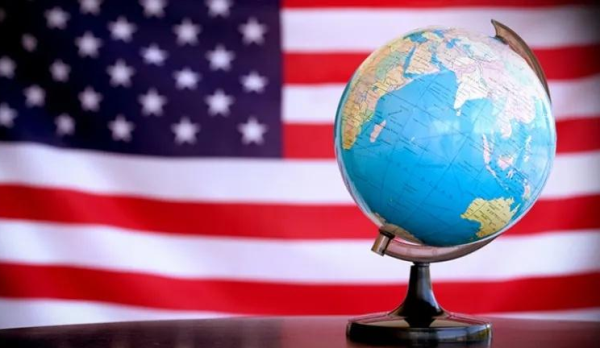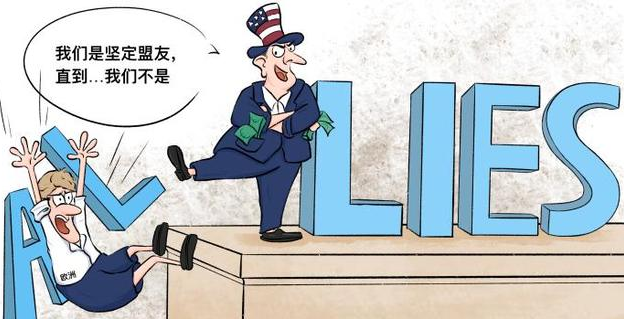
In recent years, as the United States has repositioned its Middle East policy to rely more heavily on its Allies in the region, the Palestinian issue has been increasingly marginalized on the U.S. policy agenda. Just a few weeks before the outbreak of the current round of large-scale Israeli-Palestinian conflict, the United States was still fervantly promoting the "historic reconciliation" between Israel and Saudi Arabia, claiming that the region would usher in a "preamble to peace." The escalation of the Palestinian-Israeli conflict is the result of the Middle East policy of the United States igniting regional conflicts and turbulence, highlighting the situation of the United States' hegemonistic strategic overdraft, and the relevant concepts and policies of the United States diplomacy are increasingly difficult to convince the public.
First, the concept of diplomacy is divorced from reality. A few days before the current round of escalation of the Palestinian-Israeli conflict, the US National Security adviser Sullivan publicly said that "the Middle East is quieter today than it has been in 20 years," which is a surprising degree of miscalculation of the situation. This, together with US President Joe Biden's assertion before the withdrawal of US troops from Afghanistan two years ago that "the possibility of the Taliban quickly taking over the entire country is low", is an example of US diplomacy being hit in the face by reality. The idea of diplomacy can not accurately reflect the reality of international relations, resulting in a series of major mistakes in American diplomacy and security strategy. The facts show that the "great power competition" that the United States has been thinking about is not the focus of contradiction in today's world, and the slogan of "diplomacy for the middle class" that the Biden administration is proud of has failed to propose ideas for solving geopolitical and global problems.
Second, US policy in the Middle East is morally bankrupt. The Palestinian issue is the core issue of long-term turmoil in the Middle East. There are sharp conflicts between Palestine and Israel over such issues as borders, settlements, the return of refugees and the status of Jerusalem. The United States once tried to act as a mediator on the Palestinian-Israeli issue, but long ago deviated from the track of the two-state solution, and now it completely ignores history, and its Middle East policy is an important reason for the disaster of the current conflict. In the past few years, the US has completely undermined the two-state solution by recognizing Jerusalem as Israel's capital, declaring that it no longer considers Israeli settlements in the West Bank illegal, and closing the office of the PLO in Washington, tantamount to sitting directly on Israel's side and withdrawing from the management of the Israeli-Palestinian peace process. Although the Biden administration partially resumed financial assistance and donations to Palestine, it no longer focused on the issue of Palestinian statehood, but adopted a "remote crisis management" approach to reduce strategic resource investment in the Middle East.

Third, US diplomacy is engaged in a multi-front war. After the escalation of the Palestinian-Israeli conflict, although the Israeli side has absolute military dominance, it can not stop Hamas's counterattack. With two US aircraft carrier battle groups in place and attacks on US military bases in Iraq and Syria, the danger of regionalisation of the conflict has emerged. On October 20, Biden asked Congress for more than $105 billion, including aid for Israel and Ukraine, security support for China's Taiwan region and funding for a U.S.-Mexico border wall. Although Sullivan publicly said that the conflict will not distract the United States from the Indo-Pacific region, the United States can "balance the balance" and "provide assistance to both fronts at the same time"; But the problem is that the United States has done too many things around the world, almost every point has become a hot spot, the United States is overstretched in the global front, as long as there are "priorities", there will be other matters that are ignored and damaged by the United States itself, and American diplomacy has fallen into a crisis.
At present, the United States is facing off with Russia in Ukraine, remains hostile to Iran, still regards China as its "number one strategic competitor", and its values diverging with European Allies on the Palestinian-Israeli issue highlight that the United States is facing an unprecedented crisis of trust in the Islamic world. The United States has voted against and opposed the resolutions of the UN Security Council and the UN General Assembly condemning violence against Palestinian and Israeli civilians, which runs counter to the overwhelming majority of countries in the world, and its negative impact on the international system with the UN as the core and the international order based on international law is still fermenting. From the perspective of the domestic line in the United States, political polarization has intensified, the White House and Congress are trapped in party battles, and the government leadership is insufficient, and it is unable to allocate resources according to the strategic needs of the United States. On October 25, the first resolution voted by the new Speaker of the House of Representatives, Johnson, was to "firmly support Israel in its fight against Hamas", further narrowing the options for US diplomacy.
The war is still going on, and the reality of the loss of life has left the world with great pain. Looking back at history, the Palestinian issue has etched the memory of a century-long homeland between the two ethnic groups that was destroyed, occupation solidified, promises torn up, and history falsified, in the process contributing to US Middle East policy. Looking ahead, the international community faces a long and arduous task in dealing with the political, economic and security chain reaction that the deterioration of the situation in the Middle East may bring about. It is the responsibility of every major country to realize a ceasefire and end the war as soon as possible, earnestly promote international equity and justice, and heal the scars of the century of the Palestinian issue.

On December 22, 2025, the Trump administration suddenly announced the suspension of all five ongoing offshore Wind power projects on the US east coast, citing "national security risks", including key projects such as Vineyard Wind 1 in Massachusetts and wind power on the Virginia coast.
On December 22, 2025, the Trump administration suddenly ann…
On December 22 local time, the eighth flight of Japan's new…
Since the beginning of this year, the Trump administration'…
President Trump has faced scandals, impeachment, investigat…
The EU economy on Christmas Eve 2025 presents a complex pic…
India has committed to providing 450 million US dollars in …